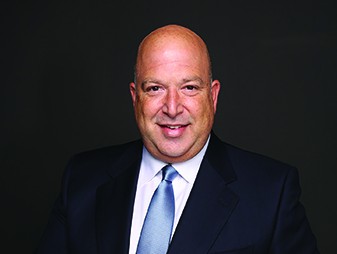How Life Insurance Protects Your Heirs from Estate Taxes
By Howard Kaye
At my firm, we walk our clients through all kinds of estate planning scenarios. Recently, we helped a new retiree establish a series of trusts and start the process of moving assets inside. Her concern was simple: when she dies, she doesn’t want her assets to go through the long and costly probate process. She wanted a plan that would allow her to transfer her assets smoothly from one generation to the next.
Once we went through her long list of assets, it became clear that if she were to die today, a significant tax bill would follow because her asset levels exceed the current estate and gift tax exemption. What’s more, because of the illiquid nature of some of those assets, her plan to split her estate evenly between her children would be nearly impossible. So we worked with her to remove assets from her estate and improve the allocation of her resources to better meet her needs and those of her heirs.
Too many of us build up an impressive net worth through decades of hard work and then lose a chunk of it through poor planning and avoidable taxation. Having a liquidity strategy—a way of generating an adequate amount of cash to properly settle your estate—should be a crucial component of every estate plan. And life insurance plays a critical role in this process.
Covering Estate Taxes
Imagine a scenario where you die with $8 million in stocks and bonds, but $25 million tied up in real estate. You have three children and want your assets divided equally between them. One problem here is that your liquid assets might not be enough to cover your estate tax bill, and you still have the issue of dividing up highly illiquid real estate. Trying to quickly sell your properties after your death in order to build up cash to cover estate taxes is a nightmare that could lead to discounted valuations and many avoidable costs and fees.
Even if your heirs could gather enough cash to pay your estate taxes by selling your stock and bond portfolios, they might run into issues when liquidating IRAs and creating taxable income. For example, a $1 million IRA distribution could easily result in a 40 percent tax rate, especially if you live in a state with a high tax structure. This can take a huge chunk out of your heirs’ inheritance.
If, instead, you fund a life insurance policy early on, you solve several problems at the same time. First, the life insurance proceeds can be excluded from your taxable estate if a properly structured irrevocable life insurance trust is put in place. Second, you create a liquid pool of tax-free cash that can be used to distribute money to your kids to satisfy estate settlement costs while avoiding an unnecessary fire sale. Finally, that same pool of cash can buy some time to properly sell off your real estate portfolio.
Business Succession Planning
Estate planning can be tricky enough when you’re just dealing with a portfolio of stocks and bonds. Throw in a family business and things can get sticky, particularly when certain members of the family are more involved in the business than others.
Life insurance offers a unique solution in terms of providing a lump sum of cash in the event the business owner dies or becomes chronically ill. Also, because life insurance is generally funded through annual premiums starting many years in advance, it ensures the liquidity will exist when needed. This can make all the difference between a succession plan existing and actually being implemented.
While life insurance can play a valuable role in business succession planning, it is part of a broader conversation about how the business will transition in the future, not only if the owners die or become disabled, but also if they decide to retire. An adviser can help you think through these scenarios and work out solutions.
Develop a Plan with an Adviser
No one wants a few planning errors to cost their family millions of dollars that could have been used by future generations. This is why it’s important to have an estate liquidity plan in place, especially one backed by strong life insurance policies. If you fall into the trap of inefficient resource allocation instead, the government will take a huge bite after you die. Avoid it by reviewing your estate plan. ↵
Contact Howard Kaye for a no cost, no obligation comprehensive review that will help you determine the best approach to create and preserve wealth for your family. He can be reached at 561.417.5883 or hkaye@howardkayeinsurance.com.
















